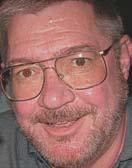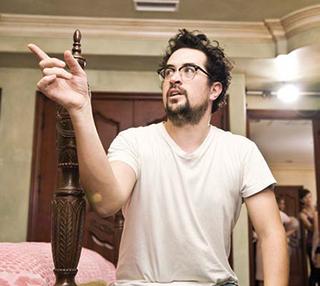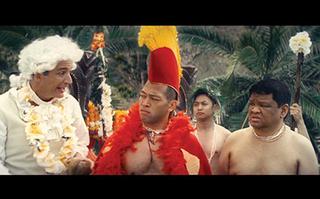‘Drunk History’ Revives Oral Storytelling

Jay Ankeney Oktoberfest runs Sept. 20 –Oct. 5, so let’s pop a cold one and think wise thoughts. Wise thoughts about drinking and the world around us. Whoa! Do they go together? You bet! Just check out the unexpected hit with an almost cultish following that Comedy Central has brewed up, “Drunk History.”
At first, it sounds like an outlandish gimmick: people who are truly and seriously drunk telling tales plucked from our past in almost giddy entertaining ways. But as each episode unfurls with three or four segments based around a central theme, the format allows the fluffing, slurring and sometimes even barfing narrator to reveal insights into our history that have been concealed under the propriety of the sterile chroniclers trying to paint a politically correct version of events.
REWRITING HISTORY
For example, did you know that Rosa Parks was not the first black woman to challenge bus segregation in Montgomery, Ala.? It was actually Claudette Colvin, but she was considered not to be telegenic enough for the NAACP’s strategy. Or did you know Congress rejected Frédéric Auguste Bartholdi’s gift of the Statue of Liberty until Joseph Pulitzer raised $100,000 to finance the pedestal? How about human rights activist William Stetson Kennedy infiltrating the Ku Klux Klan and outing its secret passwords on the “Superman” radio show?

Neil Mahoney Disguised by the overlay of inebriation, this is oral history in the finest traditions of Homer or Aesop, revealing the speaker’s true feelings on each subject. And nothing brings out those feelings better than a good shot of booze.
Now in its second season, “Drunk History,” produced by Gary Sanchez Productions, is the brainchild of Derek Waters and Jeremy Konner. It started in 2007 as comedy segments seen on YouTube, which were later incorporated into the online website “Funny or Die.” Then Comedy Central picked it up and premiered its first cable episode on July 9, 2013.
Now in its second season, “Drunk History” airs every Tuesday night on Comedy Central at 10 p.m. ET/PT.
To extend the oral history metaphor, you will notice that there are no writers cited in the credit roll. That’s because this is truly a show created in the edit bay. I was fortunate enough to speak with one of the original editors, Neil Mahoney, about episodes past, present and even future.
A confirmed fan of Apple’s Final Cut Pro 7 editing software, Mahoney has been working with Derek Waters ever since they produced a couple of “Drunk History” stories for HBO. One of them—about Frederick Douglass starring Don Cheadle—actually won the 2010 Jury Prize at Sundance for Best American Short Film.
According to the production routine as described by Mahoney, Waters interviews each episode’s narrator on camera at their own home during which, for legal reasons, the oral historian consumes plenty of their own preferred beverage to lubricate the wheels.
The storytellers, gleaned from a recurring cadre of actors and comedians including Kyle Kinane, Jen Kirkman, Natasha Leggero and Jenny Slate, research each subject ahead of time and Mahoney assures us the booze and its effects are real. However there is always a medic on the set to make sure the clock is not wound too overly tight.
“We start shooting the narrators in November,” Mahoney said, “ending up with three to six hours for each tale told in varying stages of drunkenness, which we take into the edit bay and cull down to a 15-minute rough cut. This is then reviewed by the producer and director and we trim it down to six to eight minutes of audio track.”
Mahoney works with two other fulltime editors, Nicholas Monsour and Jody McVeigh-Schultz, ably assisted by Mariel Rubin, Andrew Vona and Charles Breiner. The last two have even edited episodes on their own.

Ken Marino as James Cook, Eugene Cordero as King Kalani’opu’u and Kent Avenido from the Aug. 12, 2014 episode “Hawaii” Next, this edited audio is transcribed into a script format for real actors to use in the subsequent re-enactment of the story. Waters and his team have been able to recruit an impressive “A List” of celebrities to portray the on-screen characters in the “Drunk History” stories, including the likes of Winona Ryder, Owen Wilson, Lisa Bonet and John Lithgow. They, unlike the narrators, stay sober while portraying the historical characters during each story.
INSIDE JOKE
Now, here comes the show’s big trick. As the recorded soundtrack is played back on set from an iPad, the actors memorize what the narrator said and mimic it back word for word. The sync is remarkable, with the actors even mouthing the sounds when the narrator belches or spills his or her drink.
For example, if you saw the “Honolulu” episode that aired on August 12, you heard a train whistle interrupt the story being told by Jonah Ray Rodrigues. The actors on screen portraying Captain James Cook and the King of Hawai’i, Kalani‘ōpu‘u back in 1779, also hear the train and react to the noise.
It doesn’t make sense, but it’s not supposed to. What really happened is that, as Waters was recording Rodrigues months earlier, a MetroRail train rolled by outside tooting its tooter, and Mahoney told me the producers just decided to leave it in.
Mahoney edits back and forth from the narrator’s headshot to the re-enactors on screen depending on which series of images seems the funniest.
Toward the beginning of “Honolulu” when Rodrigues was joshing with Waters about doing another whiskey shot and we heard his voice say, “Laugh with me. I’ve seen the show and I know how it works.” We actually see that line coming from the mouth of King Kalani‘ōpu‘u. The disparity lasts just long enough for the audience to feel they are in on the joke.
The gag even extends to the visual graphics. While Karey Dornetto is telling viewers about female golf great “Babe” Didrikson Zaharia winning the 1955 U. S. Women’s Open, the newspaper headline heralding her accomplishment tracks Dornetto’s tipsy babble, proclaiming in big print, “The Best, Like, Athlete to Like, the Female Athlete to Ever Like, Walk This Earth.”
“Drunk History” doesn’t glorify getting sloshed. It shows the true effects of alcohol and leaves us to ponder whether this welcome reincarnation of oral history would even be possible without the inspired theatrical ploy of drunkenness. To paraphrase Mark Twain, it’s “A tale found in a jug, and freely translated from the jug.” Prost!
Jay Ankeney is a freelance editor and post-production consultant based in Los Angeles. Write him atJayAnkeney@mac.com.
Get the TV Tech Newsletter
The professional video industry's #1 source for news, trends and product and tech information. Sign up below.
